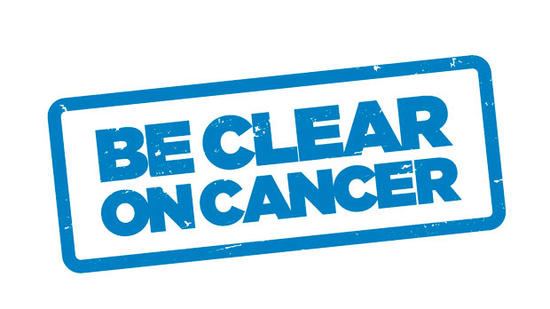'Know 4 sure' campaign: Resources and tools

Learning and Development Tools
Visit the CRUK learning and development tools page for further information, resources and tools.
Resources prepared for the 'Know 4 sure' cancer symptoms campaign pilot, which ran from 14 January to Mid-March 2013 are available on this page.
Briefing sheets are available for the following groups who are essential to the success of the campaign:
Practice manager briefing sheet
Community champions and volunteer briefing sheet
These are electronic briefings with links to further information. All are print friendly. Please do pass these on to colleagues as appropriate so they can get up to date on the campaign too.
A range of additional Be Clear on Cancer materials have been developed centrally by the Department of Health for the ovarian cancer campaign, including symptom cards, leaflets and posters:
You can order hard copies of leaflets and posters directly from the Health and Social Care Orderline or call 0300 123 1002
Hard copies of accessible versions (e.g. easy read and braille) of the information leaflet can be ordered by contacting enquiries@phe.gov.uk
Translating materials, while important, may not always be the best approach. Be Clear on Cancer materials are written in plain, straightforward English. This is often more accessible for less literate English speakers than complex translated materials. Public Health England have developed a document to provide guidance on things to consider before translating materials into different languages.
We offer a collection of recommended accredited educational resources from a variety of organisations such as Doctors.net, RCGP, BMJ and the Department of Health.
The Department of Health recently published 'Direct access to diagnostic tests for cancer: best practice referral pathways for general practitioners'. The guidance aims to help GPs in determining which patients would be suitable for direct referral to local services providing the diagnostic tests.
It deals specifically with the circumstances and symptoms that may warrant such referrals and is aimed at health care professionals across primary and secondary care and those who both provide and commission services.
A toolkit developed by Lancashire & South Cumbria Cancer Network. It’s free to access and has dedicated sections on different cancer types.
If you’re a pharmacist or a member of the pharmacy team and your customer/patient is complaining of the key symptoms or is using an over the counter (OTC) medicine connected to these symptoms can ask some key questions. These include how long they’ve been suffering the symptoms or using the OTC medicine and whether they have spoken to their GP. We know that people delay going to see their GP for a variety of reasons. They might be embarrassed, not realise their symptoms are serious or worry about wasting their GP’s time.
Be confident and where relevant, give customers permission to visit their GP. If you feel comfortable tell the customer to mention that their pharmacist sent them. It may be the push they need to get themselves checked out.
If you are a pharmacy counter assistant or member of the pharmacy team, be confident and follow your normal protocol. If you are concerned about a customer and feel uncomfortable talking about cancer, ask your pharmacist to speak to them or, if that isn’t possible, encourage the customer to go to see their GP and get their symptoms checked out. The chances are it’s nothing to worry about, but if it is cancer, it’s better for it to be detected early.
One source of support that can help you with raising the subject of cancer with patients is the British Oncology Pharmacy Association’s E-learning Centre. The centre has training for pharmacists and pharmacy team members about raising awareness of cancer in a pharmacy setting. This is free to access once you have registered on the website.
Source cancer statistics for your practice or local area using the following tools:
View Cancer Research UK local cancer stats. Find and compare statistical information and intelligence about cancer in areas across the UK. Available data includes cancer incidence, survival and mortality, early diagnosis, screening and smoking.
View Public Health England's GP Practice Profiles. Source information about key indicators relating to cancer services for most GP practices in England and aims to help GP practices consider which services they offer to their patients.
Be Clear on Cancer statement
Be Clear on Cancer was a cancer awareness campaign led by Public Health England, working in partnership with the Department of Health and NHS England. This page contains links to documents that we hope you find useful. Please note however that the views or opinions expressed within those links are not necessarily those of Cancer Research UK.
Last reviewed
Local cancer statistics
Use Local Cancer Statistics to find and compare statistical information and intelligence about cancer in areas across the UK. Data covers healthcare areas, consitituencies, local authorities and postcode.
